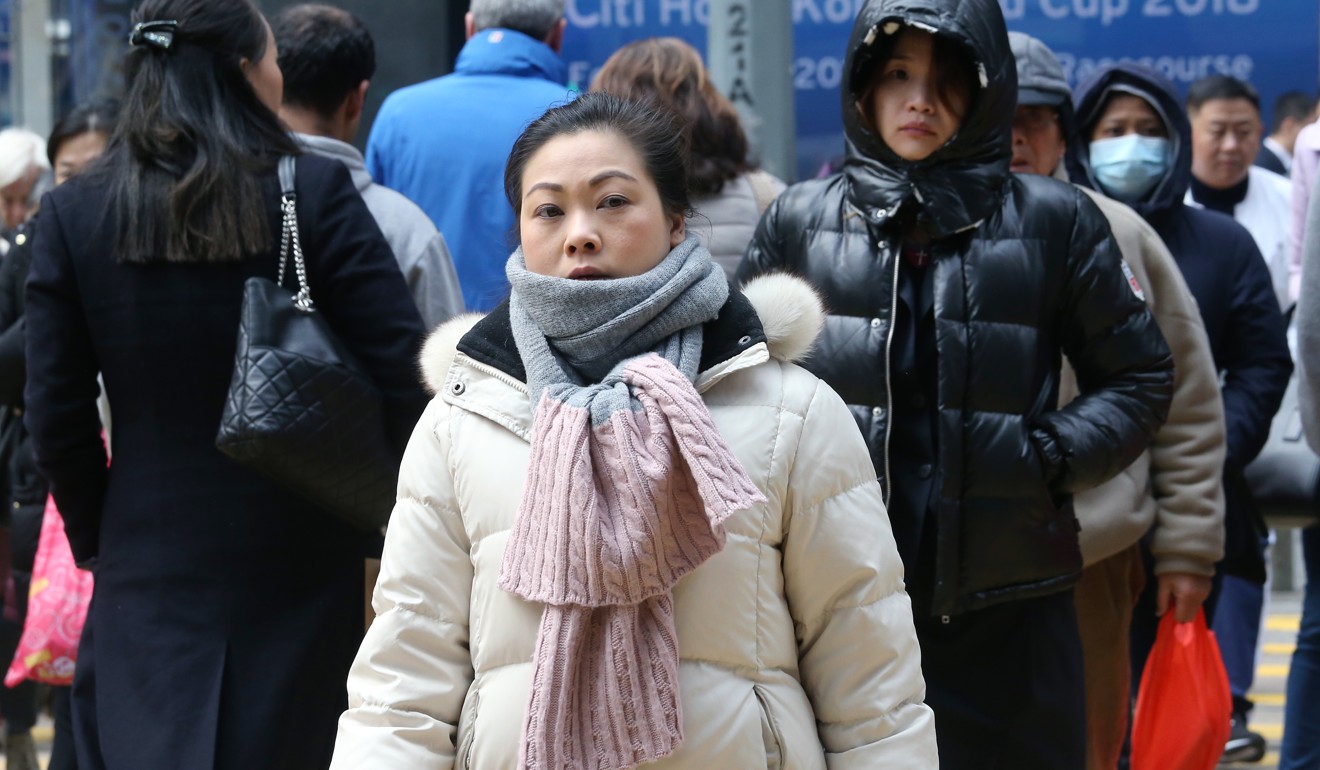
Asthma patients warned with weather in Hong Kong set to drop by more than 10 degrees
With another cold front on the way, the biggest temperature swing is expected this winter – prompting a respiratory specialist to warn asthmatics of the danger of attacks
The weather in Hong Kong is set to cool again with a drop of more than 10 degrees Celsius in the coming few days – likely to be the biggest fluctuation so far this winter – prompting a respiratory specialist to warn that the big temperature swing could trigger serious or even deadly conditions among asthma patients.
Hongkongers who woke up to a warm, foggy and humid Sunday with the thermometer pointing up to 25 degrees should not put away their warm clothes just yet as another cold front is expected to hit in the middle of the week, according to the Observatory.
Winter is not yet over: temperatures expected to plunge
The mercury is expected to drop by 12 degrees, reaching just 13 degrees next Friday.

“Big changes in temperature, whether going up or down, will definitely increase the chances of asthma patients suffering from attacks,” said Yeung Yiu-cheong, a respiratory specialist.
Hongkongers enjoy warmest first day of Lunar New Year in 11 years
Asthma attacks are characterised by the contraction of airways in the lungs, with symptoms including wheezing, coughing and difficulty in breathing that could be fatal.
Air pollution, allergens and infections are other known triggers of asthma attacks. To reduce the chance of having an attack, the doctor said patients should keep warm and take medication in accordance with their doctor’s advice.

In Hong Kong, about 5 per cent of adults and 10 per cent of children suffer from asthma, meaning about 330,000 people, or 4.7 per cent of the population, have the condition, according to the Hong Kong Asthma Society.
Warmer temperatures, less rain blamed for spike in bad air days in Hong Kong
Globally, about 300 million people suffer from the condition, with 250,000 annual deaths traced to the disease, according to the American Academy of Allergy, Asthma and Immunology. The number of people with asthma is expected to grow by more than 100 million by 2025.
While most patients can ease their symptoms by inhaling medications, about 5 per cent with a more severe condition require further medical treatment, Yeung said.

Alfred Fong, 23, told how he suffered frequent asthma attacks which affected his daily life in secondary school, being teased by other pupils for being unable to attend physical education classes or to climb the stairs.
His condition was so severe that he suffered seven attacks in 2015 and was admitted to the intensive care unit twice, Fong said at a press conference on Sunday after becoming the first patient in Hong Kong to complete a new treatment, bronchial thermoplasty, at a public hospital in mid-2017.
Why polluted Hong Kong needs a better programme to deal with asthma awareness and control
The procedure involves extending a catheter inside one’s lungs and sending radio-frequency energy to heat up and reduce smooth muscle in the airways, thus reducing the airways’ ability to contract.
After the procedure, Fong said he was finally able to hike and only had one to two attacks since.
Yeung said the procedure is only for those with severe asthma and about five patients in Hong Kong are expected to go through it this year.
Wilson Yee, president of the Hong Kong Thoracic Society, said the organisation hope to raise public awareness of respiratory health.
“Although asthma and chronic obstructive pulmonary disease cannot be totally eradicated, early treatment and lifestyle changes can help alleviate the disease and reduce recurrence.”

